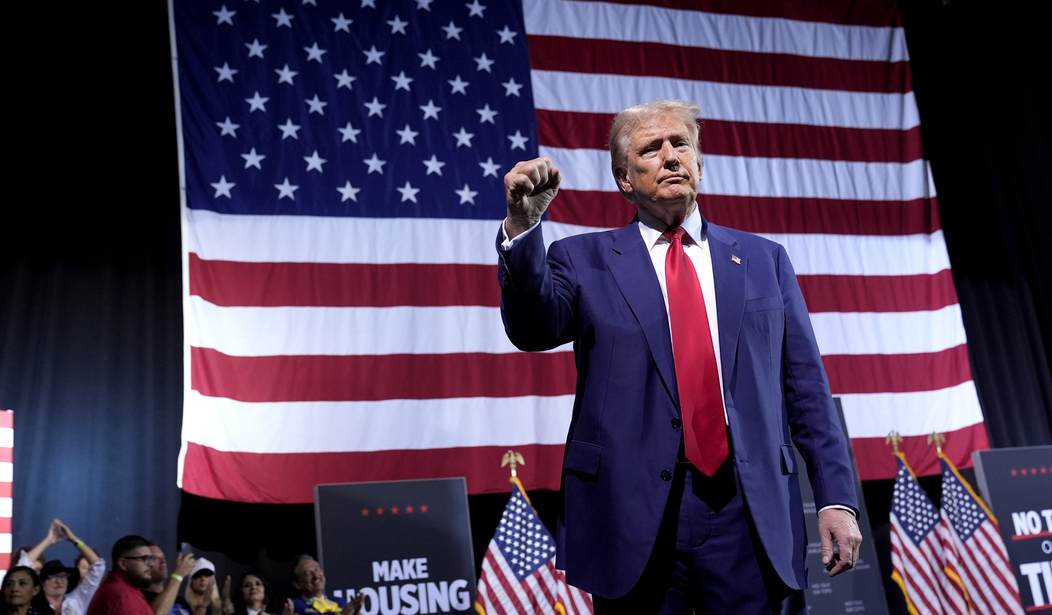Naaaah. But on second thought ... naaaah.
But on third thought ...
First off, let's remind everyone that Republicans haven't won a presidential election in Minnesota since 1972. Even in 1984, when Ronald Reagan won literally every other state in the Union, Minnesota stuck with its native son, Walter Mondale. Donald Trump got close in 2016, but Hillary Clinton still beat him, 46.4/44.9, with Libertarian Gary Johnson soaking up nearly four points in the popular vote. Four years later, Biden beat Trump by seven points. Historically, this was not a bad MN showing for a GOP nominee, but it was not close.
Lately, however, the polls have told an alarming story for the dominant Democrats in the Land of 10,000 Lakes. Before choosing MN governor Tim Walz as her running mate, Harris had a 10-point lead in the Survey USA polling series. After choosing Walz, that lead got cut to four points. And now a new survey from left-leaning MinnPost shows Harris up only four points and under the 50% mark, although the poll got conducted before the debate:
Vice President Kamala Harris is narrowly leading former President Donald Trump 49% to 44% in Minnesota, according to a new MinnPost-Embold Research poll.
The poll, conducted before the candidates faced off in a debate Wednesday evening, surveyed 1,616 likely 2024 voters in Minnesota Sept. 4-8 and has a margin of error of +/- 2.8 percentage points. Embold Research pollster Jessica Mason said that could mean it’s an even tighter race, but said “we would still consider Kamala to be leading this race in Minnesota.”...
In a similar poll Embold Research conducted for MinnPost late last year, Biden performed better than Harris in both Greater Minnesota (20 points behind Trump) and the suburbs (eight points ahead of Trump) but worse than Harris in Minneapolis and St. Paul (58% to Trump’s 26%). Statewide, Biden’s lead over Trump was within that poll’s margin of error.
Give MinnPost credit for running a substantial sample in their survey. That size sample would be impressive in larger states, let alone a state with the population of Minnesota. It gives us a pretty narrow margin of error and better predictability, especially using a likely voter screen. Harris has a statistical lead in these results because of the sample size, but the MoE leaves open the possibility that it could be close to a tie.
We see something similar in the favorability ratings, too. Nearly 50% find Trump 'very unfavorable," but 45.5% say the same thing about Harris. Walz has the lowest unfavorable ratings in the survey, but 43% of respondents also find their governor "very unfavorable." Harris gets to 46% with combined very-somewhat favorable ratings, while Trump is at 41%. No one's blowing each other out, in other words.
That would at least seem to show Trump in striking distance of Harris in a state that has the longest GOP losing streak in the country. But it's also a state where the last Republican to win a statewide office was Tim Pawlenty, who eked out a re-election win in 2006. The Twin Cities and its ring suburbs dominate statewide contests in Minnesota, and they have turned solidly blue.
Are they solid enough, though? Power Line's John Hinderaker noticed this in the results:
The poll showed regional divides among likely voters. Harris secured a substantial majority of the vote (73% to Trump’s 21%) in Minneapolis and St. Paul, but the candidates are virtually tied in the seven-county metro area excluding Minneapolis and St. Paul. Trump had a more dominant lead (28 percentage points) in Greater Minnesota.
John adds: "If Trump can run anywhere near even in the Twin Cities suburbs, the election in Minnesota will be close." And close might be enough to indicate strength elsewhere. "But if Trump runs close here, and if even the Twin Cities suburbs are open to his message," John concludes, "there are a number of other states that should fall into his column." That would include the Blue Wall states like Wisconsin, Michigan, and Pennsylvania.
And not to be too excited about a single poll result, but Insider Advantage put Trump up 49/48 in Michigan, in a poll taken the day of the debate and the day after. That's the only poll in any battleground state conducted with any post-debate response so far in RCP's aggregation. We may see a post-debate bump for Harris yet, but even the MinnPost's pollster is skeptical about that.
With all this said, I'm still not convinced that Trump will break through in Minnesota unless Harris has a widespread collapse in support, in which case Minnesota will be a side story at best. However, it looks as though Harris and her campaign will have to spend some time and money shoring up a state that they must have thought they had locked up by choosing Walz. And that has a value of its own, especially as the days count down to the end of the election.








Join the conversation as a VIP Member